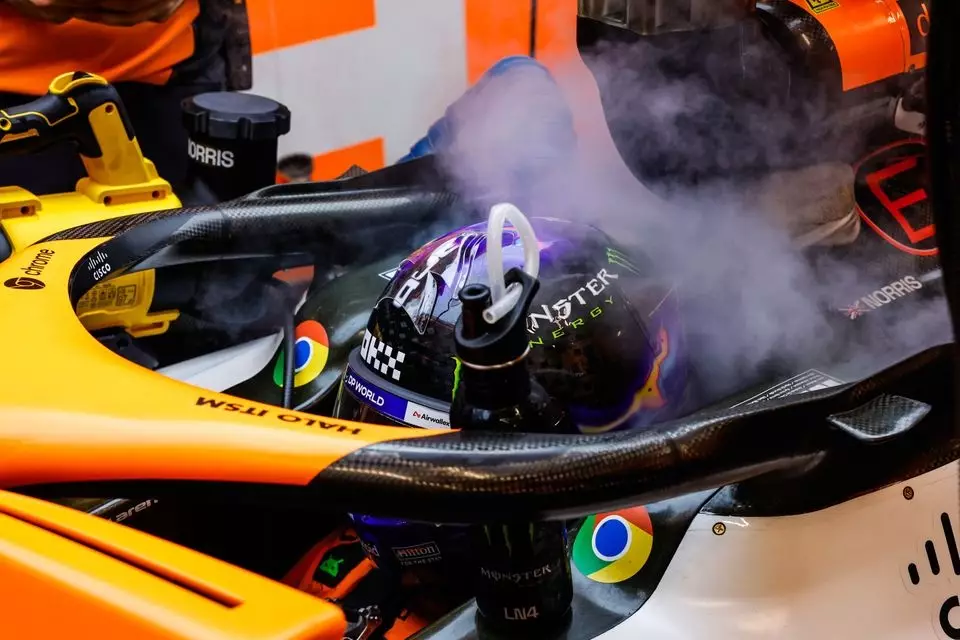Formula 1 has long been known as the pinnacle of motorsport, where technological innovation meets human endurance on the racetrack. The latest announcements from the FIA’s Formula 1 Commission herald significant changes designed to improve driver safety, particularly in extreme heat situations, as well as refine the competitive integrity of the sport. These adjustments, approved for the 2025 season and beyond, reflect a proactive approach to emerging challenges in the racing environment.
The discussion surrounding driver cooling solutions gained prominence following the 2023 Qatar Grand Prix, where several drivers experienced alarming symptoms of heat exhaustion after the intense conditions of the race. With increasing temperatures predicted in various locations hosting Formula 1 events, the FIA, alongside F1 teams, prioritized research aimed at safeguarding the physical wellbeing of drivers.
Originally, proposals included the implementation of a complex air conditioning system. However, the final decision has moved towards a more straightforward solution that simplifies the mechanism while maintaining efficacy. This driver cooling system, mandatory only during particularly hot races, symbolizes a vital step towards establishing a safer environment for drivers, acknowledging their extreme physical demands during races. Additionally, the plan to adjust the minimum weight of the cars when these systems are deployed is indicative of the FIA’s commitment to balancing safety with competitive fairness.
Another significant change is the revision of the grid closing protocol, triggered by logistical challenges faced during the Brazilian Grand Prix. The withdrawal of Alex Albon after a crash had already reshaped the starting grid, raising concerns about the potential confusion and unfair advantage in race-day dynamics. To counteract such scenarios in the future, the FIA has established a cut-off time for finalizing the starting grid.
This change, which stipulates that the final grid will be determined one hour before the race, serves to enhance the predictability and fairness of race day. Any cars withdrawing up to 75 minutes before the start will now be excluded from the grid formation, allowing remaining competitors to redeploy in the appropriate order. Such regulatory refinement contributes to the integrity of competitive racing while potentially reducing last-minute chaos that can undermine the sporting spectacle.
The recent FIA Commission meeting also delved into the financial aspects of the sport, particularly the ongoing adjustments to cost cap regulations. In response to the growing emphasis on sustainability within motorsport, expanded exemptions for costs related to sustainable initiatives were approved. This move not only supports teams in navigating financial boundaries but also aligns with a broader cultural shift towards environmental responsibility.
In an age where sporting bodies are increasingly scrutinized for their environmental practices, these financial rule adjustments signal a commitment to fostering sustainable growth within F1, allowing teams to innovate and invest in ecological technologies without unfair financial strain.
Promoting Inclusivity: Gender-Neutral Regulations
Lastly, the FIA’s dedication to inclusivity has manifested in revisions to the sporting regulations, which now incorporate gender-neutral language. The goal here is clear: to create an environment that welcomes all participants, regardless of gender. By eliminating language that could be perceived as exclusionary, the FIA is setting a precedent for inclusivity in motorsport, echoing similar efforts made in lower-tier series like F2 and F3.
These developments mark a pivotal moment for Formula 1 as it enters an era marked by heightened awareness of safety, fairness, environmental considerations, and inclusivity. Each change reflects a meticulous approach to addressing existing challenges while also anticipating future concerns. As the sport evolves, the FIA’s initiatives pave the way for a more equitable and sustainable motorsport landscape, ensuring that it continues to captivate fans and participants alike in the years to come.


Napsat komentář